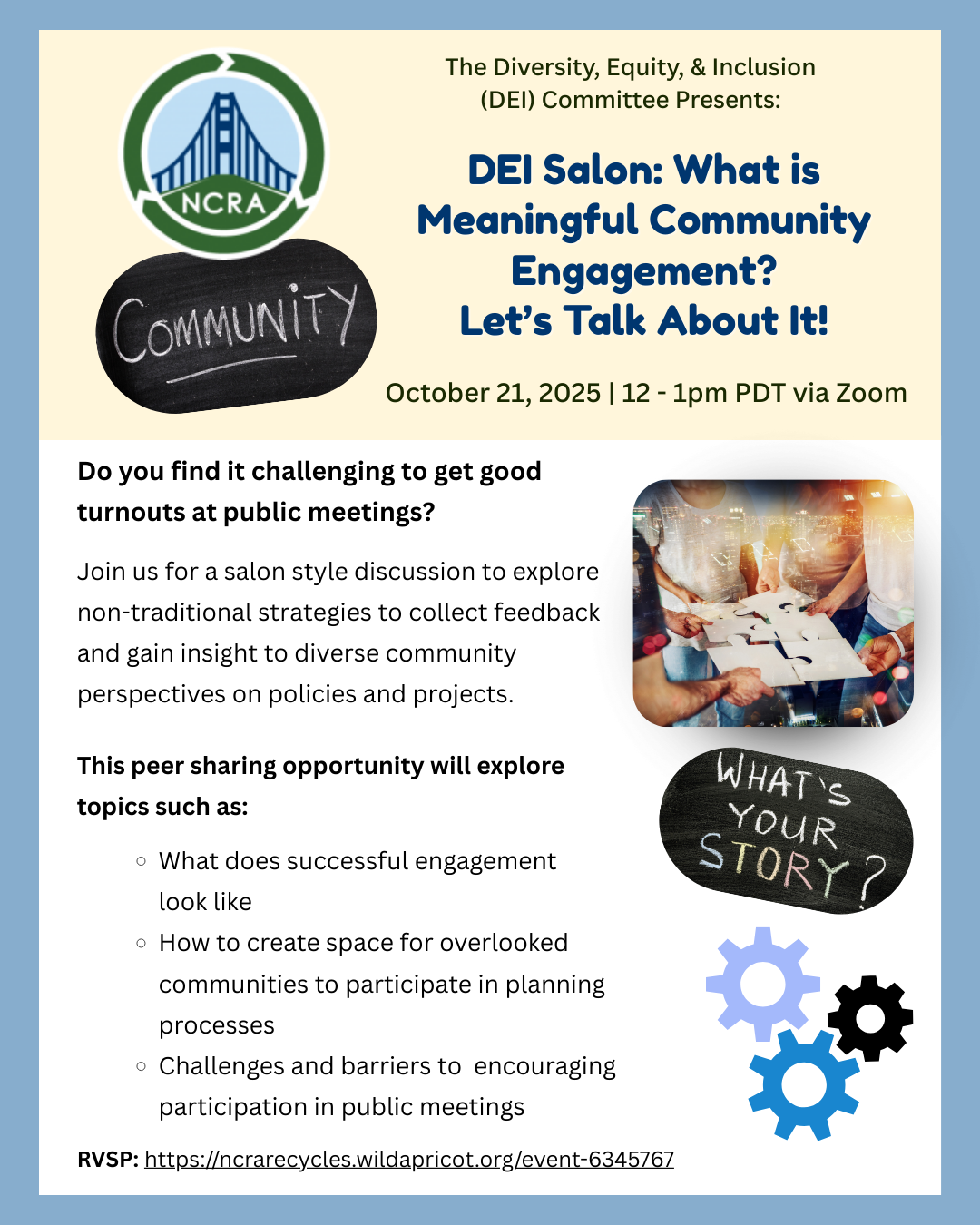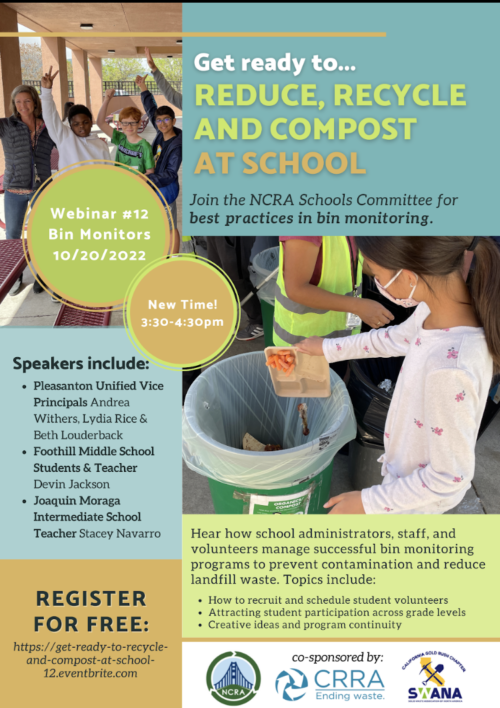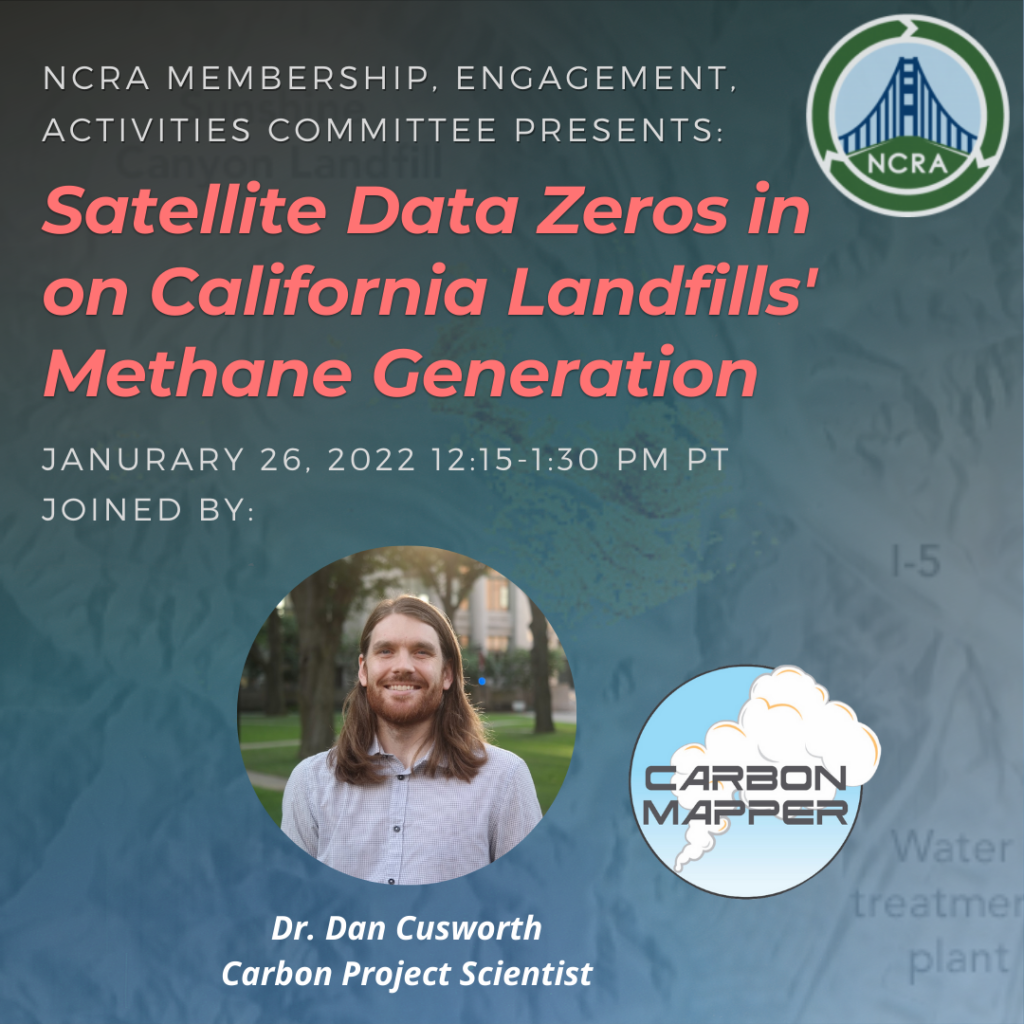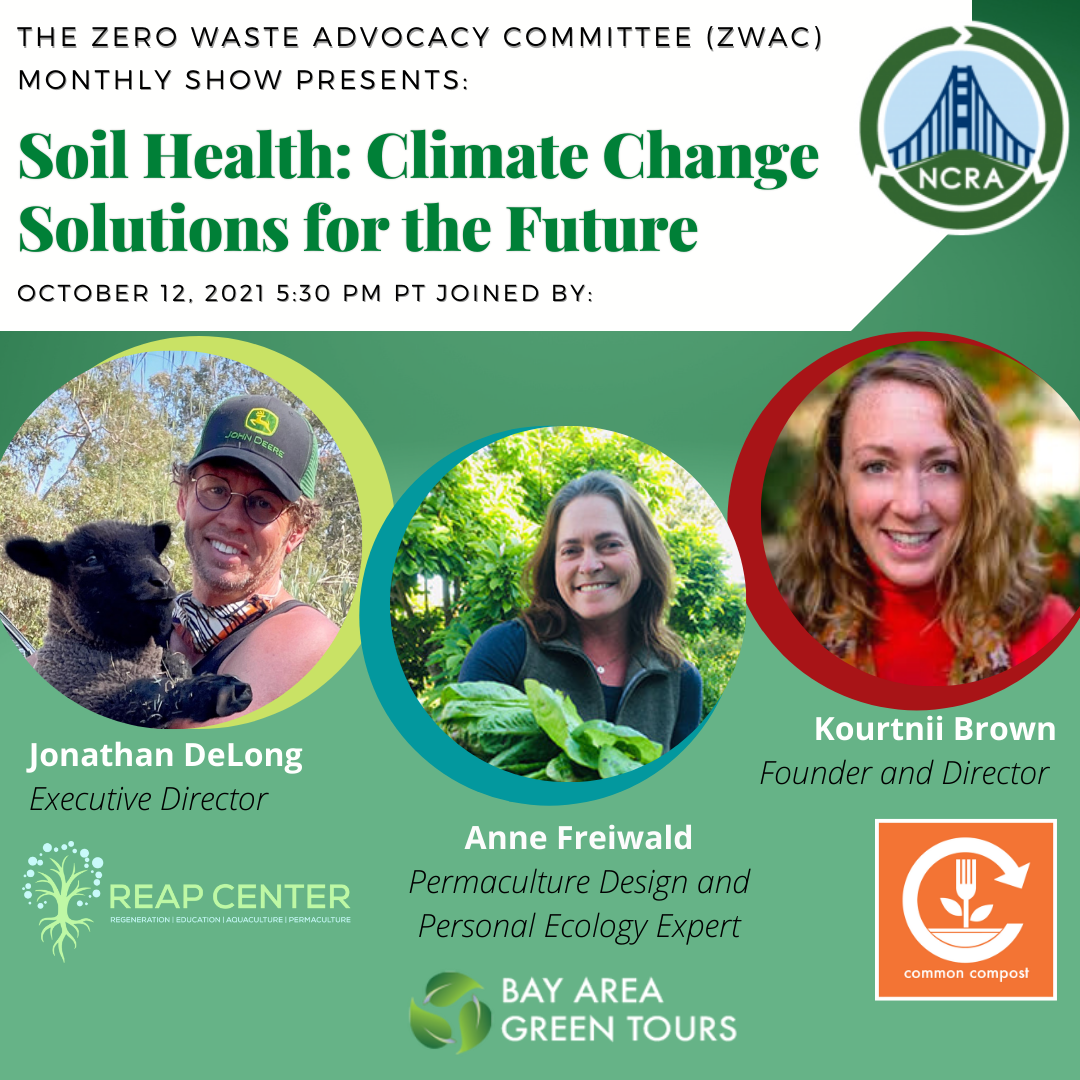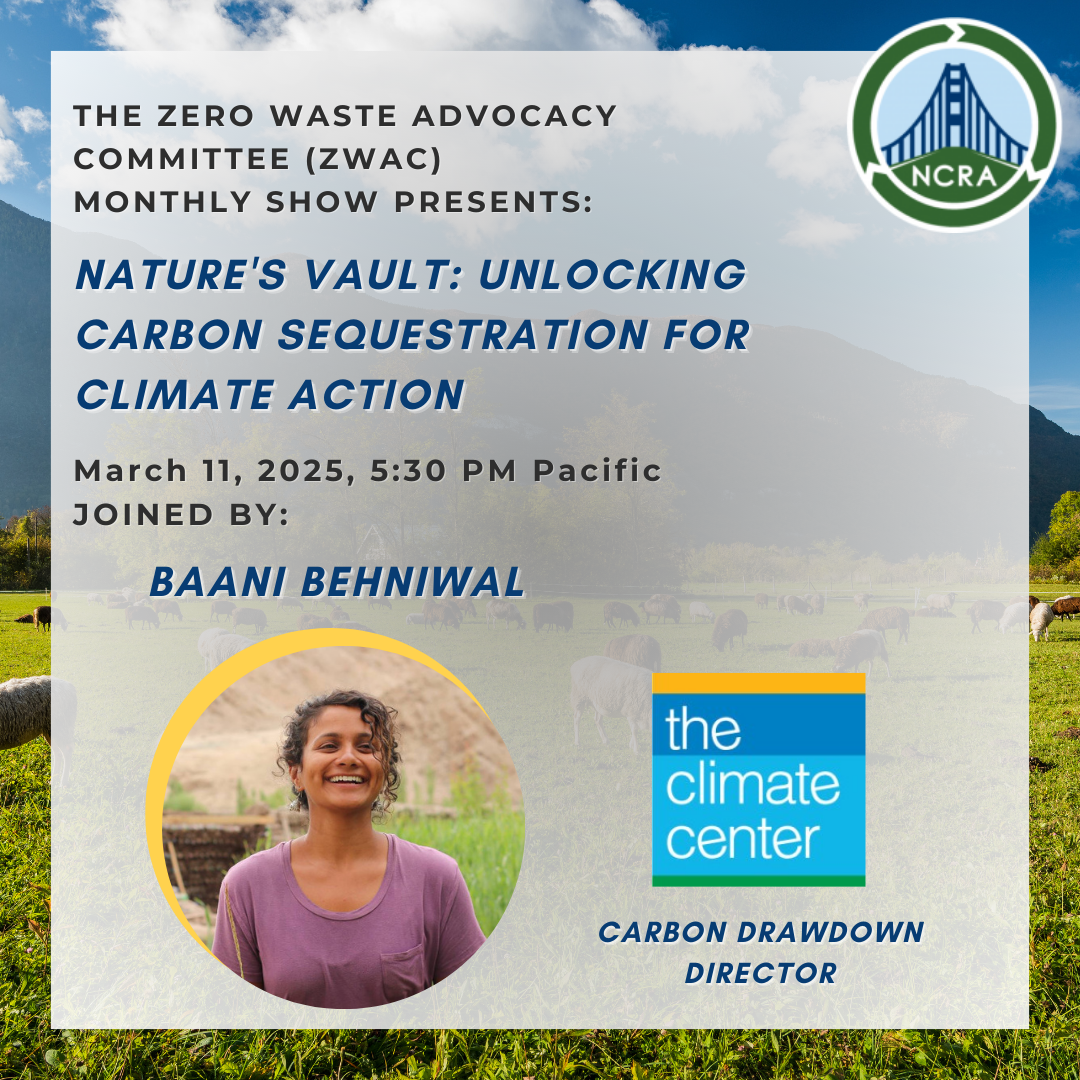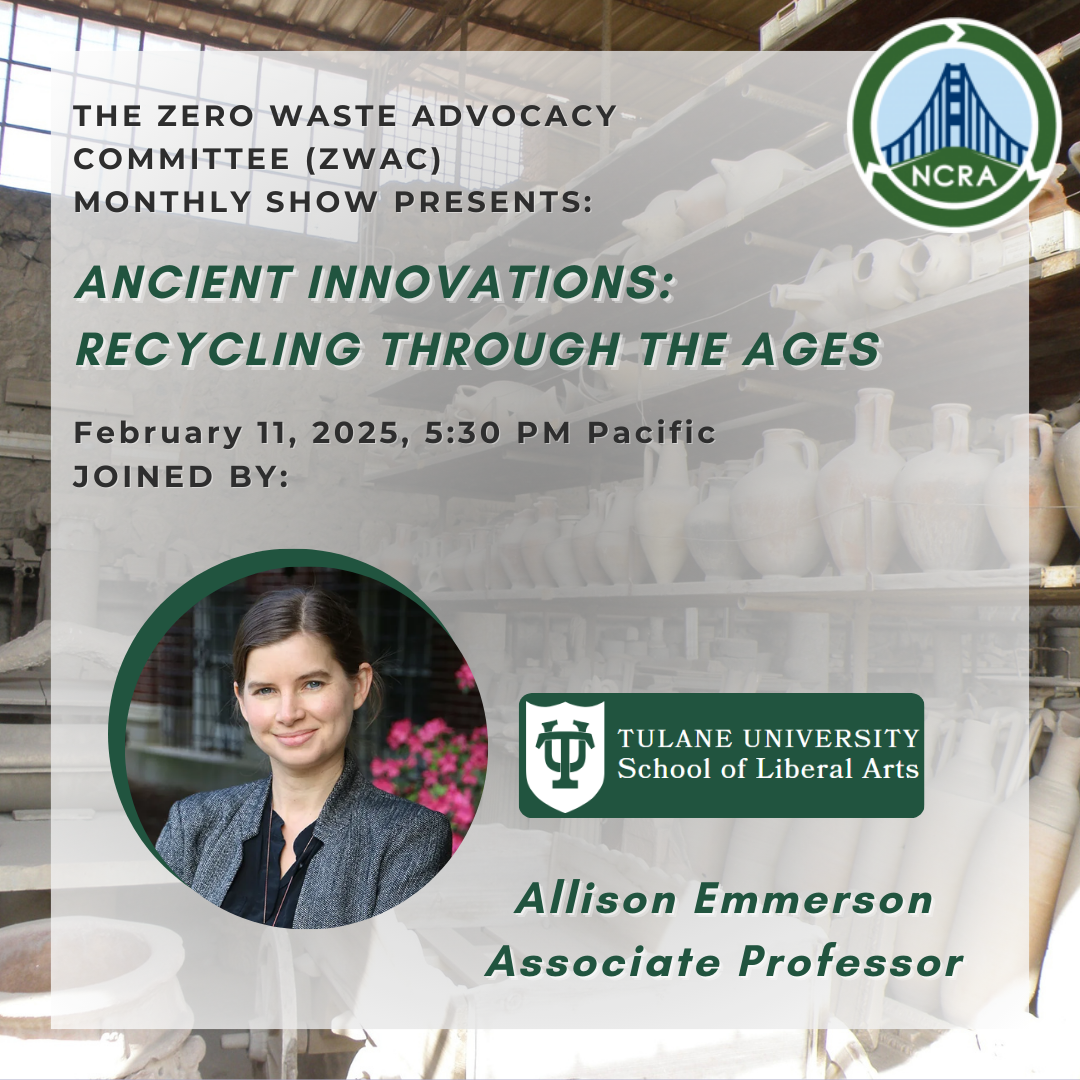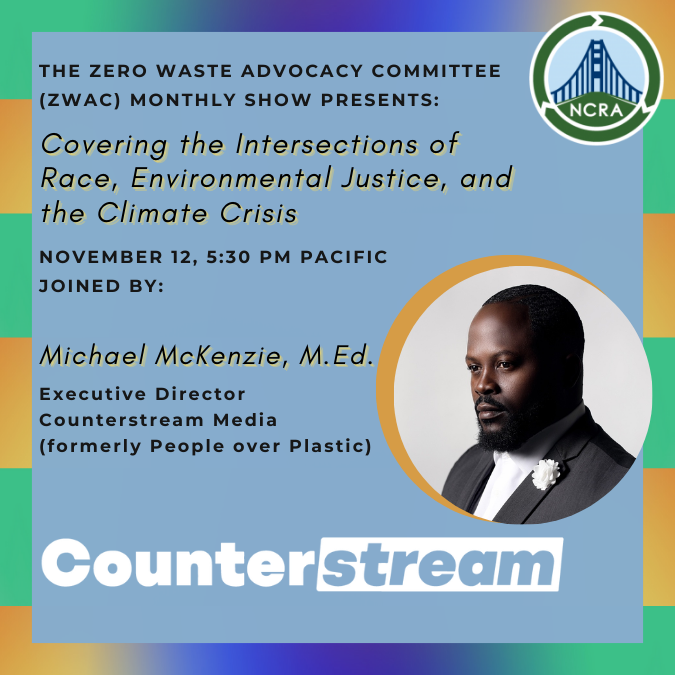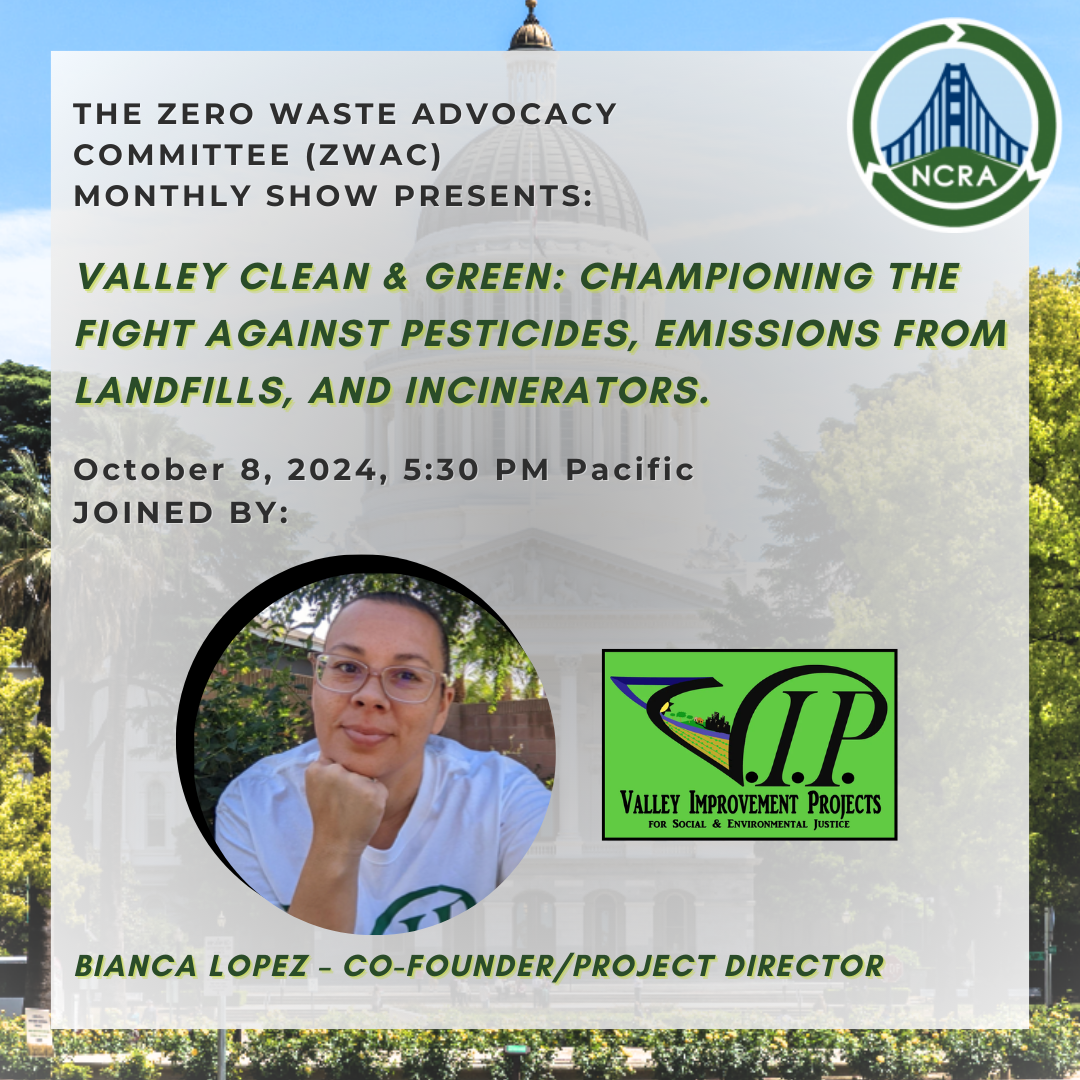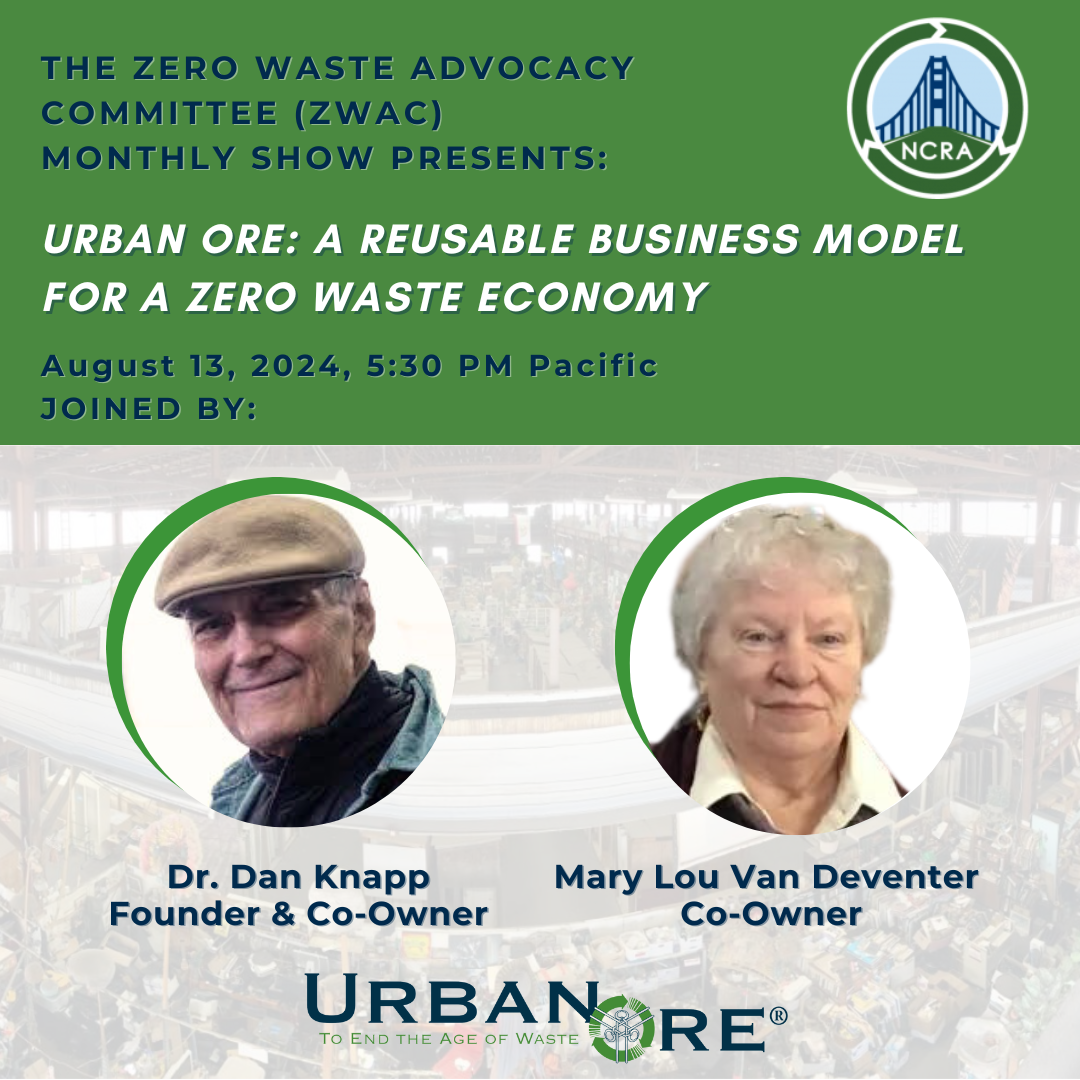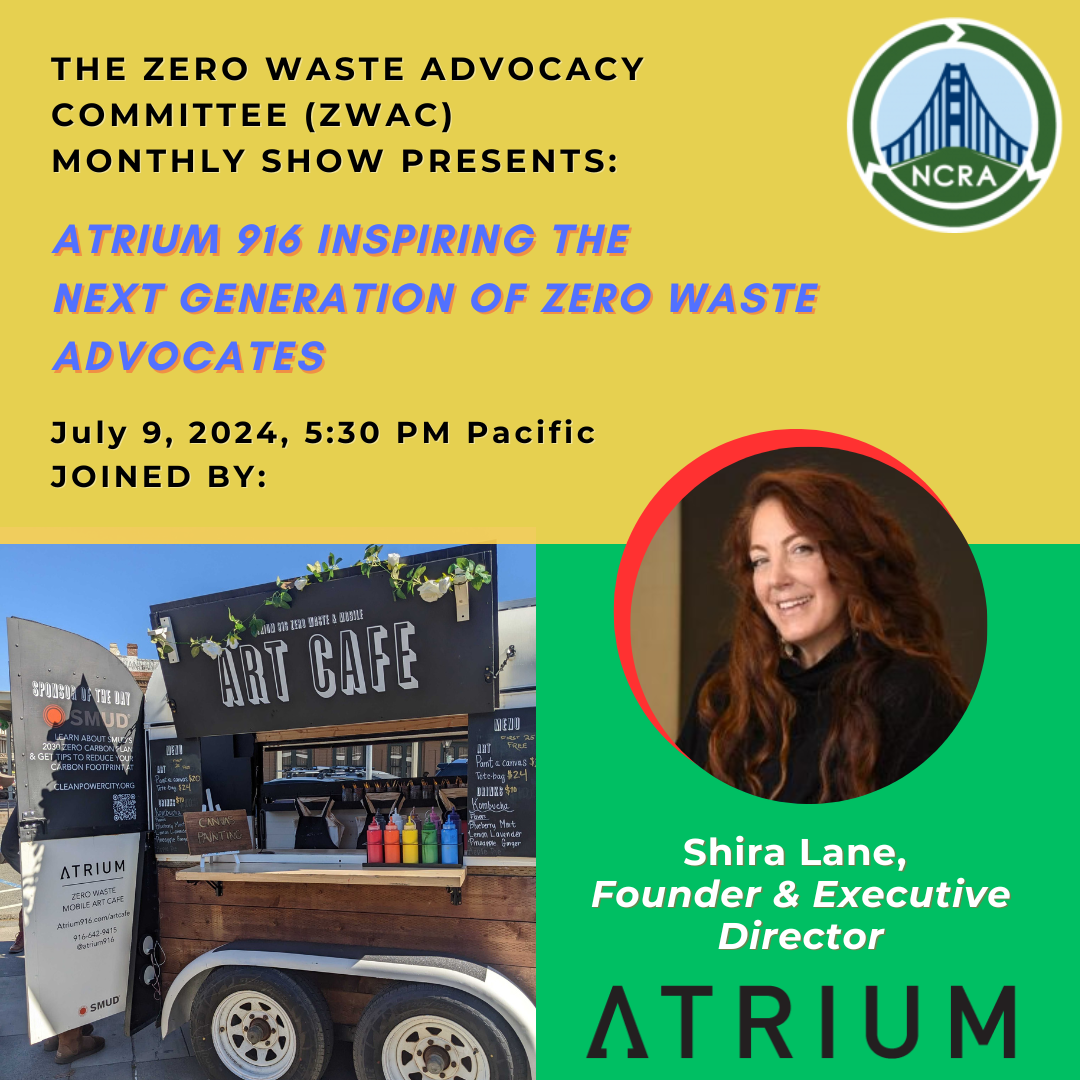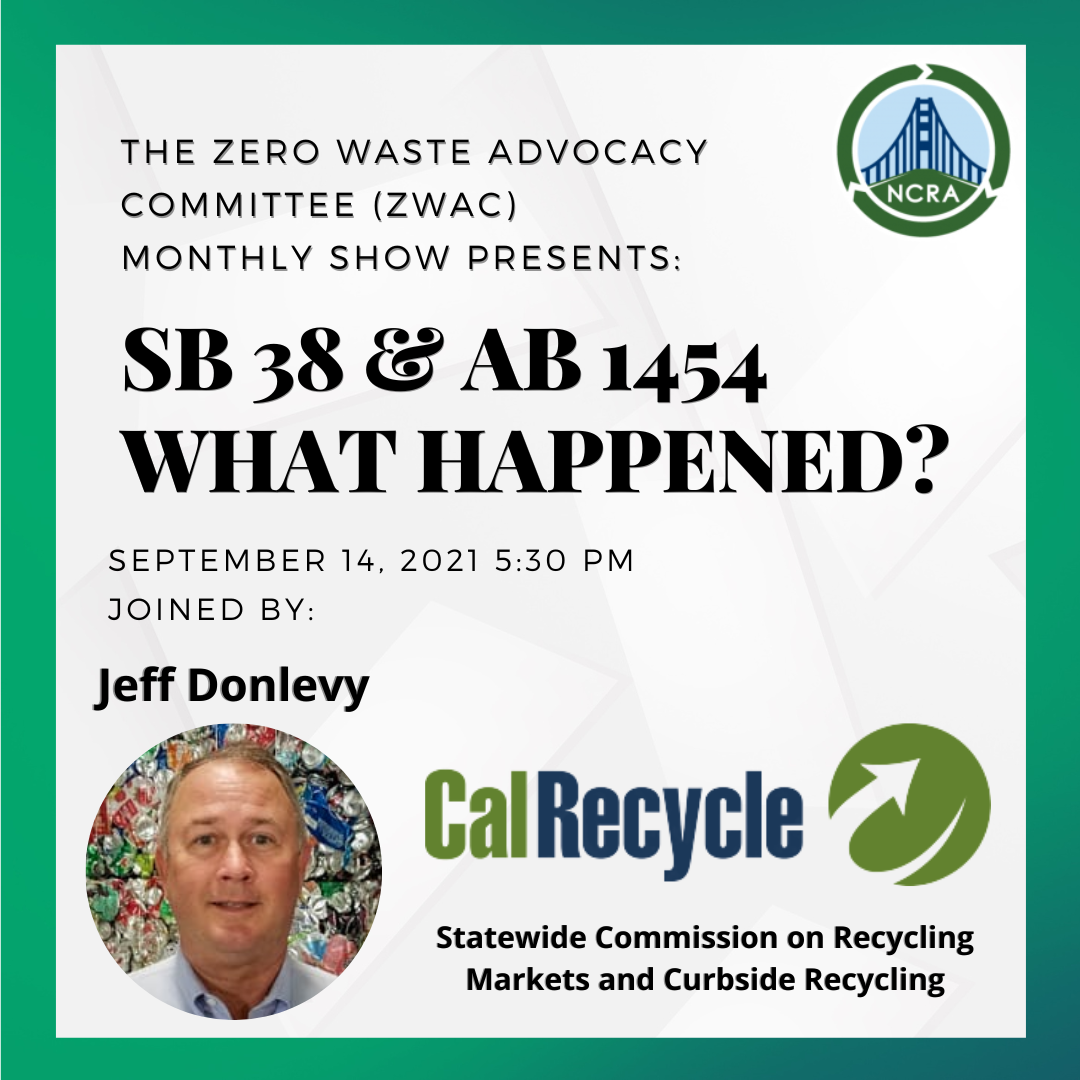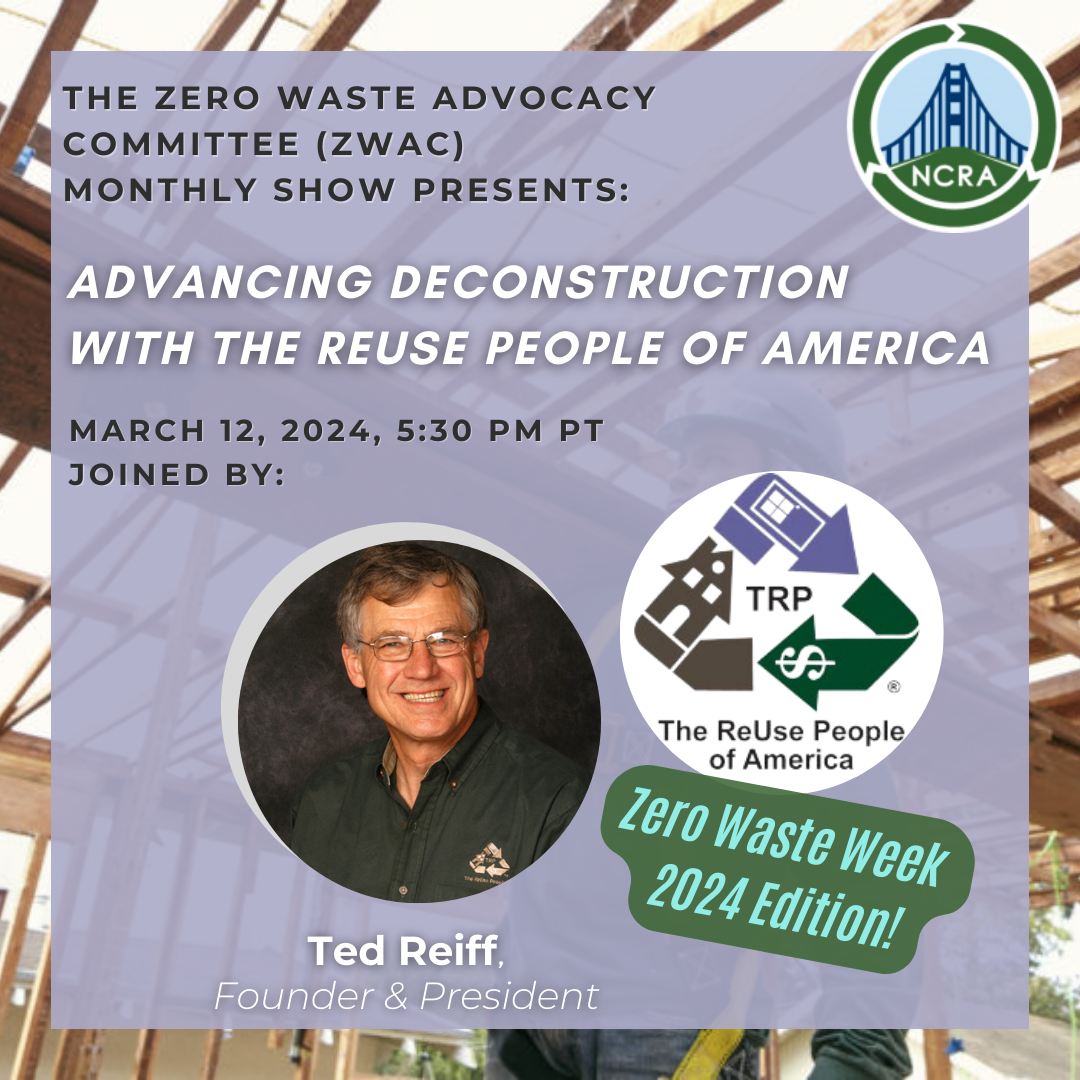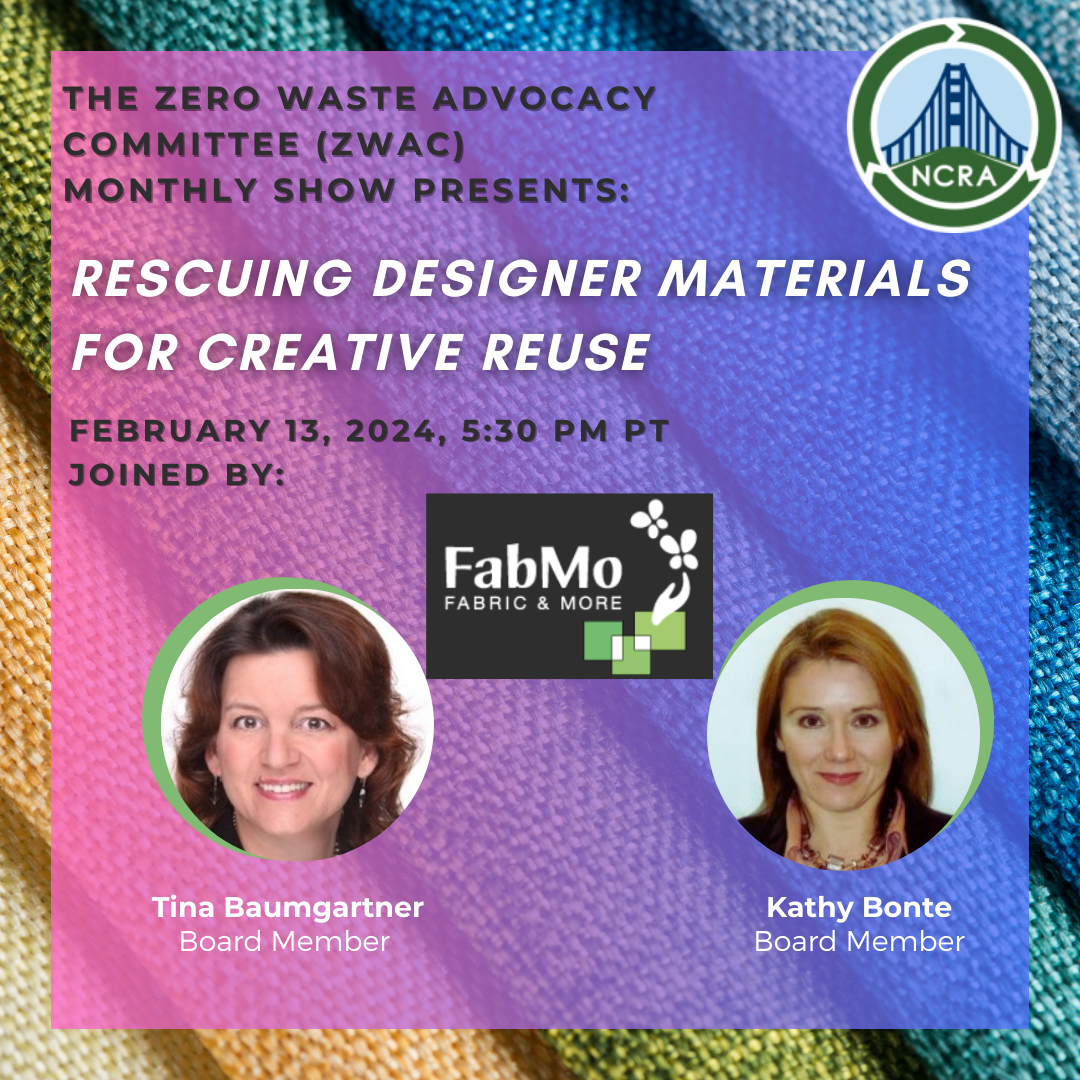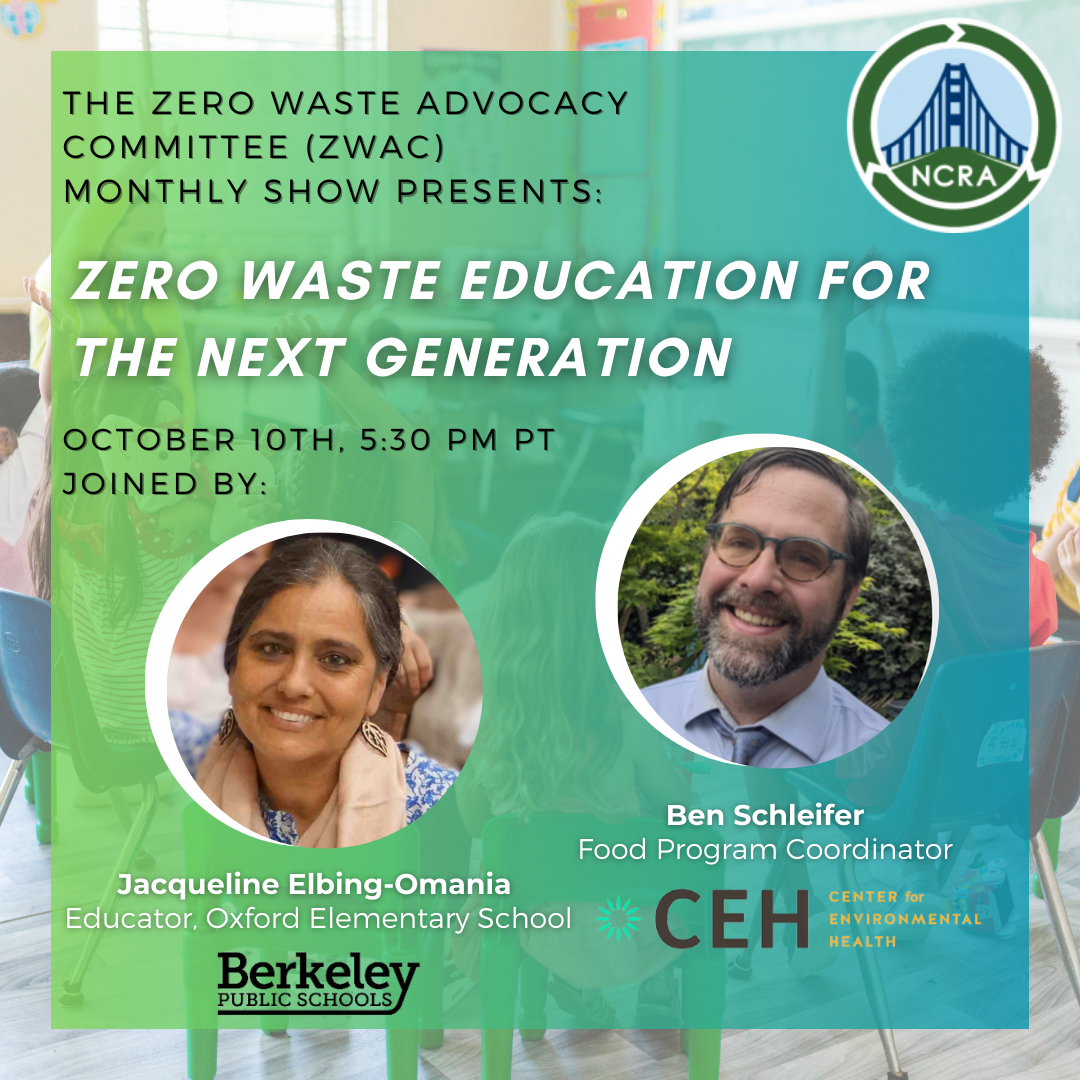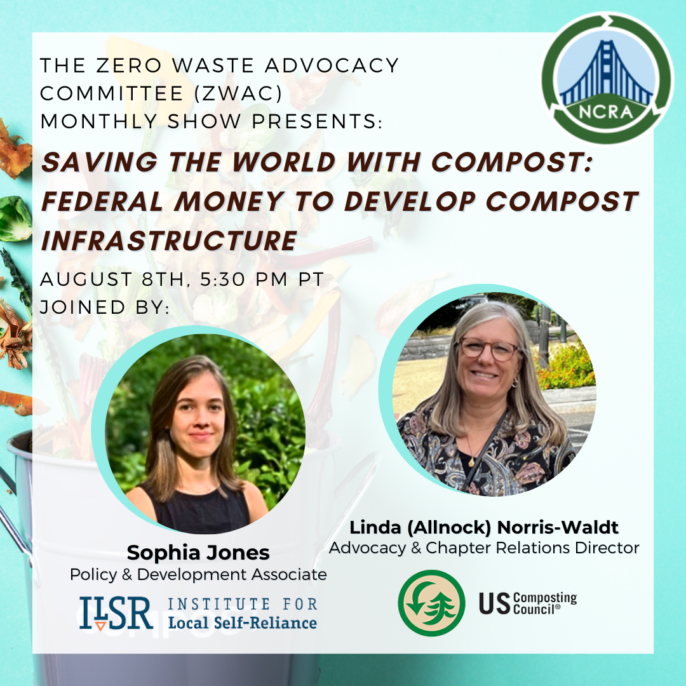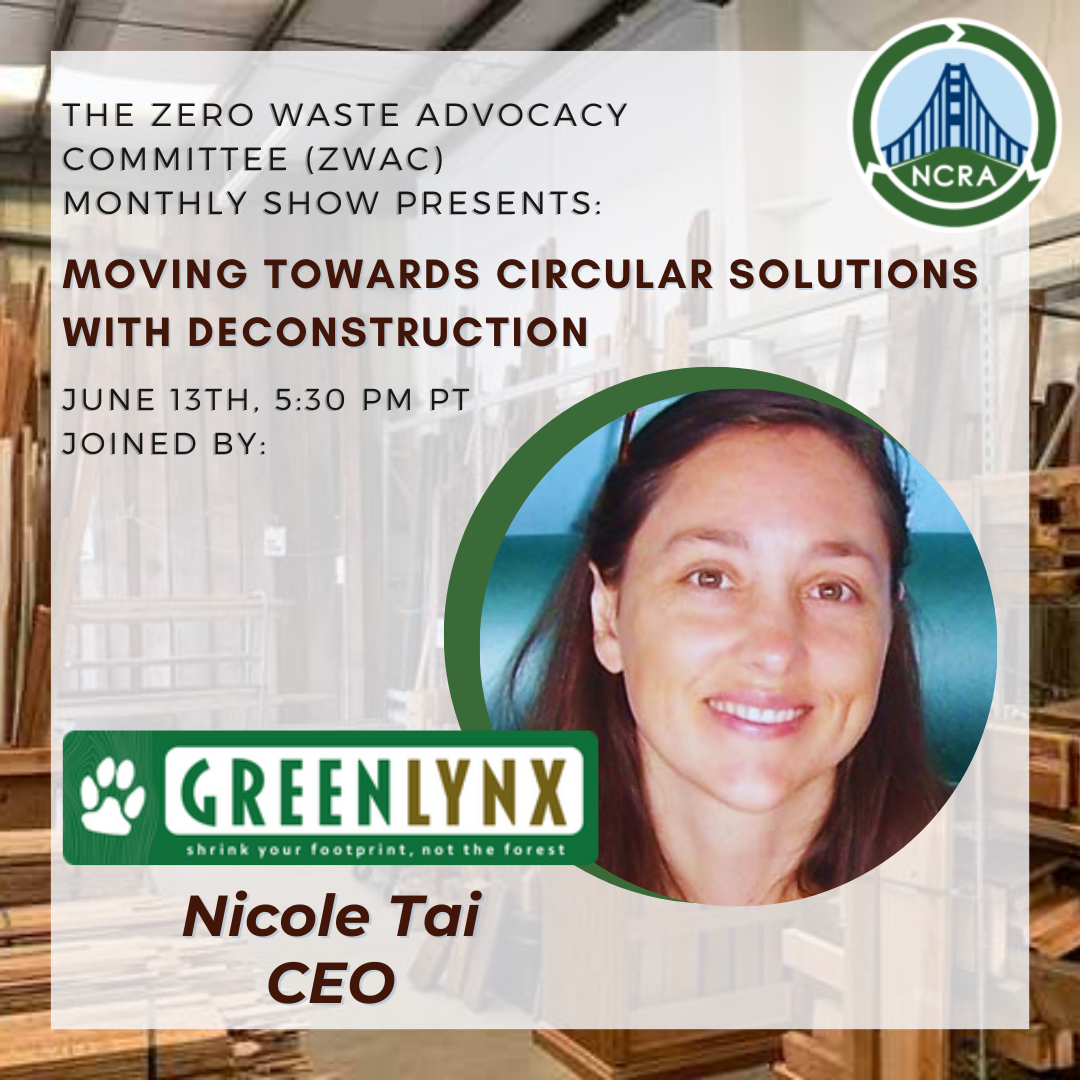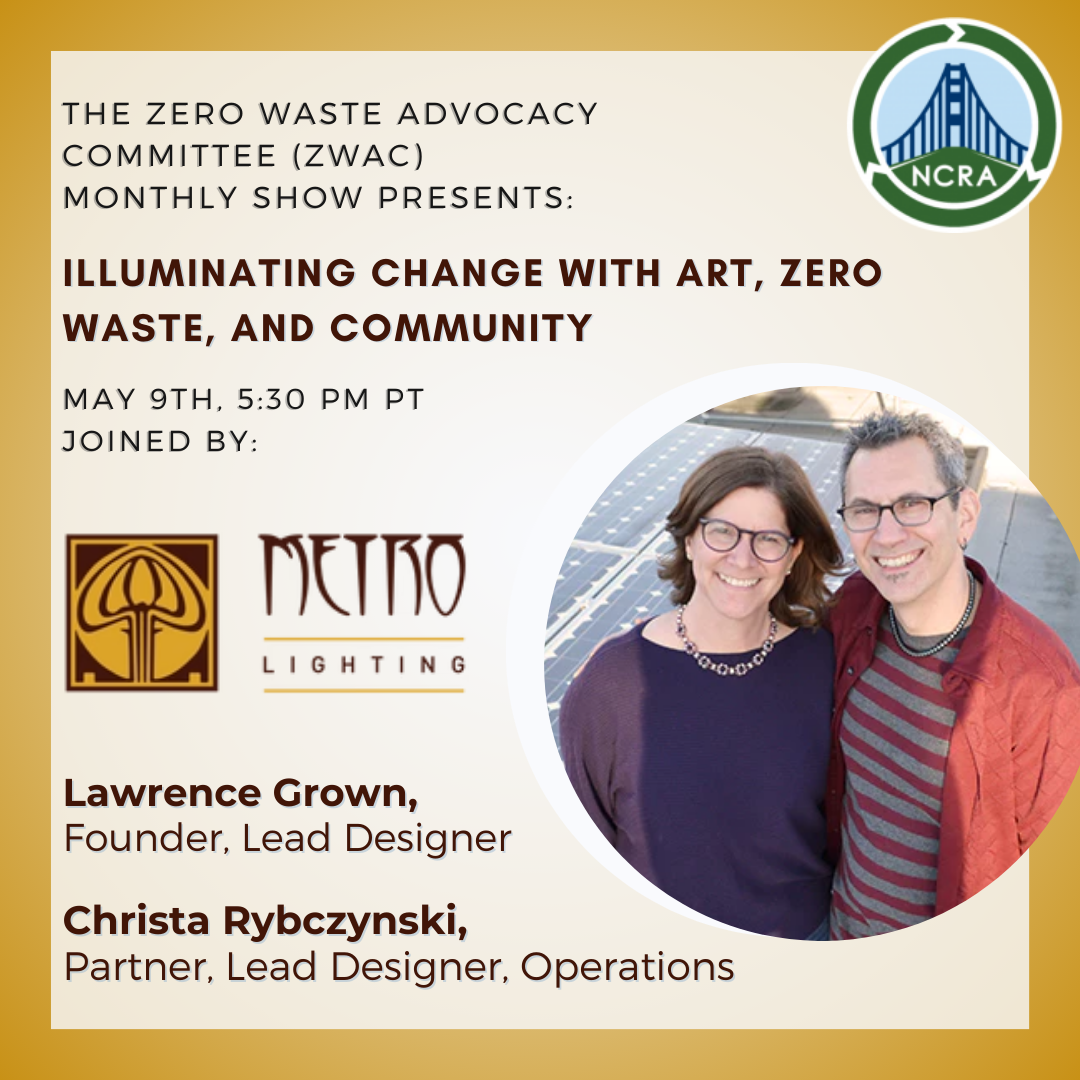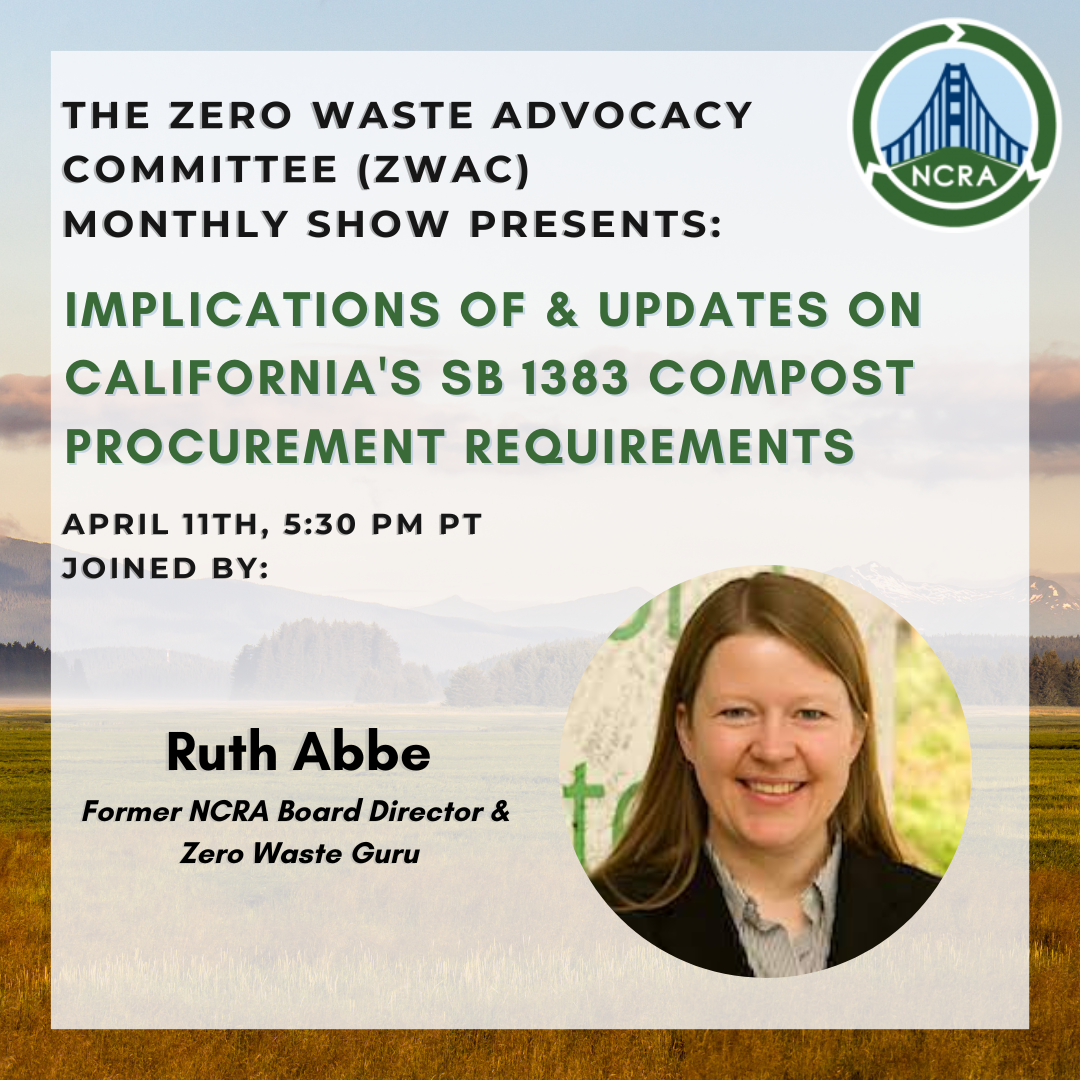Category: Education
Webinar: Best Practices in Bin Monitoring, 10/22
Satellite Data Zeros in on Landfill Methane Generation, 1/26
Climate Change Solutions for the Future, 10/21

Contact NCRA to learn more about ZWAC and get involved https://ncrarecycles.org/about/contact/
Why Isn’t Everyone Composting Yet? Part 3 – Telling the Story
By Tim Dewey-Mattia, Public Education Manager, Napa Recycling & Waste Services and NCRA Board Member, 4/1/2021
Part 3: Telling the Story (Part 1) (Part 2) (Part 3)
Former NCRA President Arthur R Boone recently posed a question to me via email on “Why the conversion of the yard debris green cart into the full-service organics cart has stumbled badly in getting rolled out? Would love to understand all that resistance better.” Here were my thoughts, which we both thought would be valuable to share with the rest of the NCRA News readers.
—
In Part 1 and Part 2 of this series, we talked about behavior change and uneven access to programs. For the third and final article, we’ll look at how we can “tell the story” of composting in a more compelling and effective way.
Organics program branding has also been an ongoing problem. Recycling is recycling… but in this case, is it the compost cart, or the organics cart, or the green bin or the yardwaste (+) cart, etc? I think this brings up the larger issue that customers don’t value organics; not like they would an aluminum can or cardboard box, which provides some perception of value because it can be made into a new can or box. There is a solution here – call it one thing. In Napa, we call it the “compost cart” since we make compost from it all, just like the “landfill cart” is the stuff we take to the landfill.
You also need to aggressively educate the community about making compost, and why making compost reduces greenhouse gas emissions, and adds nutrients back into the soil… while also reminding them of the bad stuff that happens when it goes to landfill. I think facility tours (or videos) are key here. Nnot being able to give tours of our composting facility during the pandemic has been a big bummer. There is still a lack of perception of why it’s important to compost – but the reasoning is compelling, so we need to tell the story more powerfully and effectively.
We definitely need more data to figure out exactly where we are – we’ve found it’s really hard to measure participation in curbside organics programs, since if you look in the compost cart the food is often hidden in the yard trimmings. Meanwhile, if you look in the trash, everything is hidden in bags. This is one of my big hopes with SB 1383 – the law requires us to sample all routes, and facility streams, each year. This could give us really powerful data on what is ending up where, and how it progresses over time. Also, while San Francisco and Alameda County have had mandatory programs for a while now, this will be the first time in most places that it will be illegal to put organics (or recyclables) in the trash…up to now, you really only got in trouble if you contaminated your recycling or organics streams.
One silver lining from the pandemic is that we do seem to be seeing more participation in the residential curbside organics collection… but it’s still not where it needs to be. I will say that, as a whole, I’m much more optimistic about organics than recycling at this point… so even with all of these hiccups I think things are generally going in the right direction with organics programs, so there’s that!
Questions or comments? As always feel free to contact me at tim@naparecycling.com… or follow up with a Letter to the Editor or article of your own in the NCRA News!

